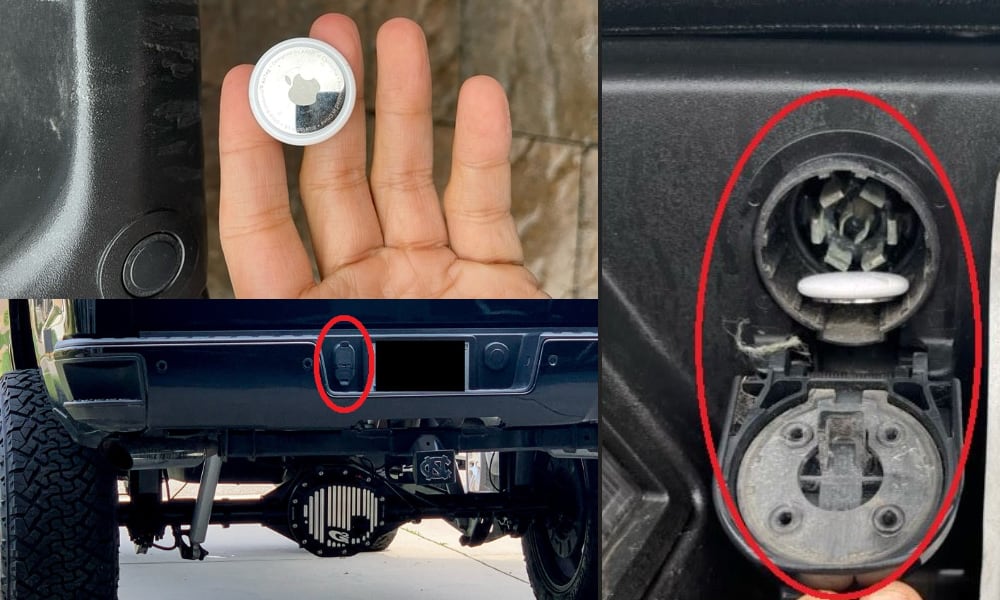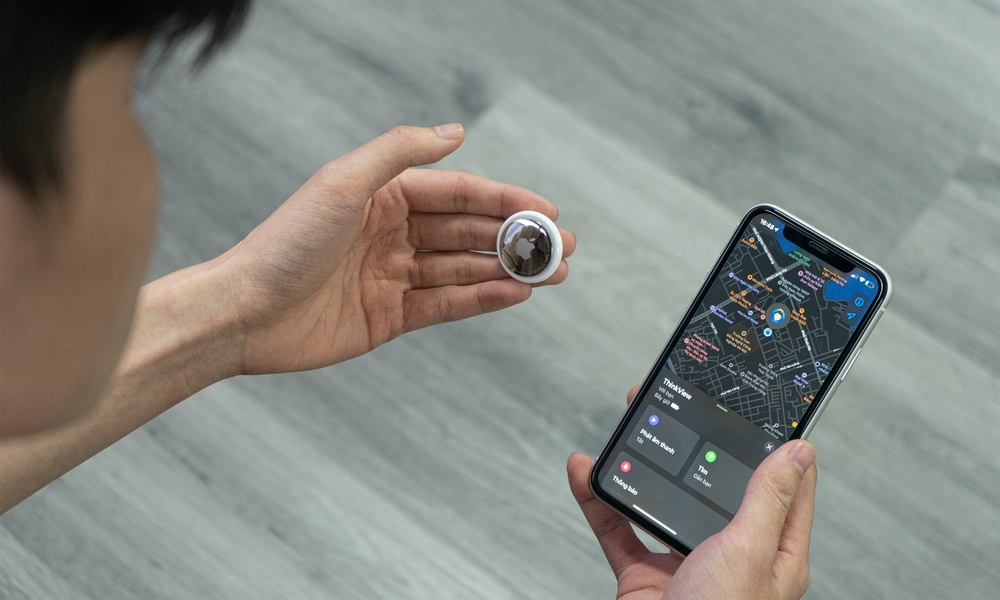New Lawsuit Claims AirTag Stalking Led to ‘Multiple Murders’
 Credit: Apple
Credit: Apple
Toggle Dark Mode
Last December, a class-action lawsuit was filed against Apple by two women who alleged that the company had empowered criminals by creating and marketing a “dangerous” product in the form of its AirTags without doing enough to prevent them from being used by stalkers and domestic abusers.
Now, the heat on Apple has been turned up, with a follow-up report by Ars Technica revealing that “more than three dozen victims allegedly terrorized by stalkers using Apple AirTags” have joined the class-action lawsuit.
The expanded group of plaintiffs come from various walks of life, but they’ve all experienced different scenarios where an AirTag has been illegally used to track their location. The class action is seeking “statutory damages, actual damages, and punitive damages, as well as injunctive and declaratory relief against Apple,” claiming that the company released “an unreasonably dangerous product into the stream of commerce,” misrepresented how harmful AirTags were, and “facilitat[ed] the unwanted and unconsented to location tracking of Plaintiffs and Class members.”
The original court filing in December pointed to two reported murders “in which the murderer used an AirTag to track the victim.” A recently amended complaint now points to “multiple murders,” including individuals who have also been murdered or murdered others while trying to track down their stolen property.
Immediately after the AirTag’s release, and consistently since, reports have proliferated of people finding AirTags placed in their purses, in or on their cars, and even sewn into the lining of their clothes, by stalkers in order to track their whereabouts. The consequences have been as severe as possible: multiple murders have occurred in which the murderer used an AirTag to track the victim. Similarly, individuals have been murdered—or murdered others—when using AirTags to track down stolen property and confront the thieves.
Class Action Complaint Case 3:22-cv-07668-VC
There’s no arguing with those facts. We’ve seen extensive news coverage and even shared some stories of situations where AirTags have been misused and abused. The amended lawsuit claims there’s been an “explosion of reporting” on AirTags being used for stalking in the ten months since the original case was filed, citing 150 police reports in the US as of April 2022, plus 19 AirTags stalking cases in Tulsa, Oklahoma alone.
The plaintiffs allege that Apple not only knowingly released a dangerous product into the wild but also that it hasn’t done enough to mitigate those harms. While Apple has added numerous anti-stalking protections, the complaint claims these don’t work well enough, and when they do, they place a burden on the stalking victim to resolve the situation by locating the AirTag themselves — a task that’s sometimes nearly impossible.
For example, one plaintiff in the class action suit has been receiving AirTag alerts on her iPhone and hearing beeps from an AirTag hidden somewhere in her Mercedes. Yet, despite multiple visits to her dealership and private mechanics, nobody has been able to locate the AirTag. She can’t even trade in her car, as the dealership won’t take a vehicle with a hidden AirTag inside. She’s been to the police, who are unable to help without possession of the AirTag, and in recent weeks, has been followed several times by someone in an unknown vehicle that’s presumably using the AirTags to stalk her.
The stalking victim has reported this to the police, who have told her that she will need to avoid driving her car and recommended that she purchase a gun for protection, the lawsuit notes.
Ms. Alowonle lives in a state of constant anxiety, fearing for herself and her 8-year-old daughter, knowing that she and her daughter are being monitored without knowing by whom or why. Further, Ms. Alowonle is powerless to remedy her situation: she cannot get rid of her car, as it has one or more AirTags hidden within it, and thus cannot be sold or traded in. Nor can she afford the considerable expense of having the car disassembled to find the AirTag (and to date, she has taken it to multiple mechanics who have been unable to locate the device without disassembly). Thus, to escape her situation, she would have to buy a new car, with no trade-in, which is financially unfeasible.
Other plaintiffs have described having to relocate to new homes, being afraid to leave their houses for fear that another AirTag is hidden on them, and experiencing extreme levels of paranoia, fear, and anxiety.
Assuming the class action proceeds, it will be up to the courts to decide whether or not the case has any merit in terms of Apple’s responsibility in all of this. Certainly, there are other more dangerous trackers out there, but the lawsuit claims the relative affordability and ease of use of AirTags make them “the weapon of choice” for stalkers and abusers.
What separates the AirTag from any competitor product is its unparalleled accuracy, ease of use (it fits seamlessly into Apple’s existing suite of products), and affordability. With a price point of just $29, it has become the weapon of choice of stalkers and abusers.
Class Action Complaint Case 3:22-cv-07668-VC
This implies that Apple owes a higher duty of care to ensure its products are not abused. However, the lawsuit also alleges that Apple has repeatedly claimed the AirTags are “stalker-proof” and “heedlessly forged ahead” in releasing the AirTags, despite warnings from “advocates and technologists.”
Prior to and upon the AirTag’s release, advocates and technologists urged the company to rethink the product and to consider its inevitable use in stalking. In response, Apple heedlessly forged ahead, dismissing concerns and pointing to mitigation features that it claimed rendered the devices “stalker proof.”
Class Action Complaint Case 3:22-cv-07668-VC
In reality, while domestic safety advocates rightly pointed out that Apple hadn’t thought things through as well as it should have before the AirTags were released, the company offered more protections out of the gate than any other location-tracking tag before the AirTag, and it’s actively worked to address many of those concerns — albeit not to everyone’s satisfaction.
‘Stalker-Proof?’
There’s no indication that Apple or any of its executives have ever referred to the AirTags as “stalker-proof.” This a term that Apple executives — or any responsible PR person — would be careful to avoid. Instead, the phrase “stalker-proof” seems to have been coined by Fast Company in a headline for an April 2021 article we reported on in which Michael Grothaus sat down with Apple VP Kaiann Drance and Ron Huang, Apple’s senior director of sensing and connectivity.
In that article, Drance and Huang explained some of the security features Apple had built into AirTags to help prevent them from being abused, but neither came close to calling them “stalker-proof” or even implying that they were. What Drance said was that Apple “thought carefully about how to get this right in a way that no one else in the industry’s ever done before,” and Huang added that “we designed for the privacy of AirTag owners and nonowners.”
If you are concerned that there’s a risk of your being tracked you could contact law enforcement. What the AirTag’s serial number is used for is when you first set up your AirTag it is paired with an Apple ID along with some additional information such as your name, your email address, your date of birth, and things like that, which Apple could provide to law enforcement if asked for, with the proper warrants and process.
Kaiann Drance, Apple’s VP of worldwide iPhone Product Marketing
The lawsuit claims that “Apple Affirmatively Sought to Dismiss and Minimize Concerns About the Threats Surrounding AirTags, Going So Far As to Call the Product “Stalker-Proof” and points to the original Fast Company article, as well as coverage of that article by 9to5Mac, TechTelegraph, and MUO, all of which used the same term in their headlines. In doing so, it claims Apple not only “fail[ed to adequately disclose the risks associated with the AirTag,” but that it also “affirmatively misled the public and the press as to those risks.”
The lawsuit also points to press coverage illustrating the dangers of AirTags, including the 2021 Wired article, Apple AirTags Are a Gift to Stalkers, which was co-authored by the Electronic Frontier Foundation’s (EFF) director of cybersecurity, Eva Galperin, and Albert Fox Cahn, Executive Director of the Surveillance Technology Oversight Project.
However, this article was written before Apple took steps to improve the safety features of the AirTags. Galperin later acknowledged the improvement, noting that “the anti-stalking mitigations that Apple has implemented are finally working” and that “having the AirTag alert go off is actually something that a person can bring to the police as solid evidence.” Still, Galperin was also clear that while those were welcome improvements, Apple has only scratched the surface.
Cahn is far more circumspect regarding AirTags and firmly believes the product should not exist.
This is too little too late. These gimmicks do little to prevent AirTags from being misused, and they often only notify targets once the damage is done and their location has been tracked. There’s no technical fix that can prevent AirTags from being abused. As long as Apple continues to sell a cheap, easily-hidden tracking device, stalkers will continue to use it. The only solution is to stop selling and supporting AirTags. This product is far too dangerous to stay on the market.
Albert Fox Cahn, Executive Director, Surveillance Technology Oversight Project
This seems to be the stance that this new class-action lawsuit is taking, alleging that Apple has violated federal and state laws by releasing a defective product that has caused harm, and has been “unjustly enriched” and should not be allowed to “retain the ill-gotten benefits” that it gained from its malicious, oppressive, and willful” decision that “were calculated to injure” and “made in conscious disregard” of its customers’ rights.
Plaintiffs and Class members seek punitive damages because Apple’s actions—which were malicious, oppressive, and willful—were calculated to injure Plaintiffs and Class members and made in conscious disregard of Plaintiffs’ and Class members’ rights. Punitive damages are warranted to deter Apple from engaging in future misconduct.
Class Action Complaint Case 3:22-cv-07668-VC
The case also cites a California penal code provision that “prohibits the use of an electronic tracking device to determine the location or movement of a person,” alleging that Apple has violated this law by “intentionally intrud[ing] on and into Plaintiffs’ and Class members’ solitude, seclusion, or private affairs by intentionally geolocating them,” intrusions that are “highly offensive to a reasonable person.”
The plaintiffs are asking the court to award damages to all persons in the US who own iOS or Android devices on the basis that everyone in the US with one of these devices is at risk of being stalked by AirTags. It’s also seeking a court order that would likely require Apple to take its AirTags off the market entirely.
Apple has until October 27 to respond to the suit and is most likely to file for an outright dismissal.










